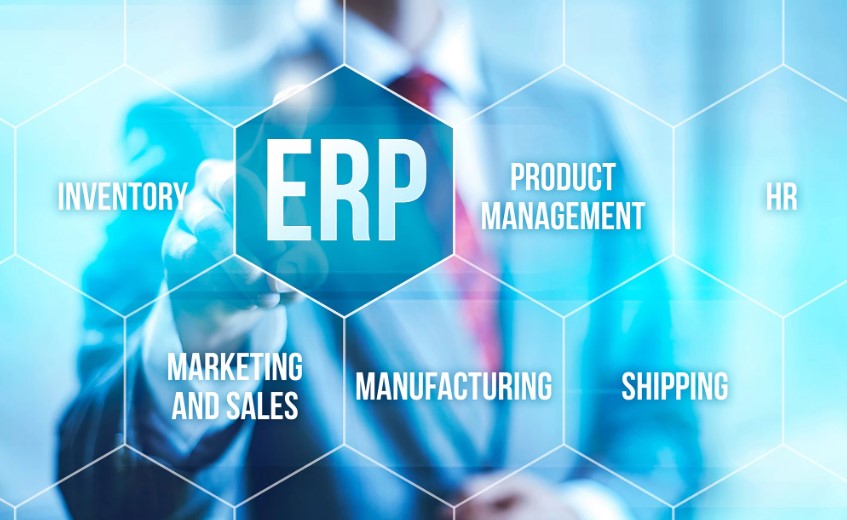ERP solutions have as much of a place in produce businesses as they do in the manufacturing or industrial industries. In fact, the fast-paced nature of the produce industry makes ERP solutions even more important to implement.
Many small or new produce businesses may find ERPs unnecessary, but starting a business is no easy task, and getting organized may require the assistance of an ERP platform. Every progressive business looking to upscale or better manage its operations should consider integrating one into its workflow.
ERP software is used primarily to streamline all processes involved in a business’ production, shipping, accounting, and administration processes. Integrating an ERP solution into a business’ workflow processes helps businesses handle daily activities like procurement, invoicing, compliance, project management, and supply chain operations.
Businesses can also count on ERP solutions to aid and improve inventory management and order tracking systems. Some ERP solutions like https://usesilo.com/ even provide their users with capital financing options to expand their business operations.
This article gives insight into how deploying ERP software can help improve your produce business’ workflow processes.
1. Efficient data management
For produce businesses, proper data collection and management are crucial. When analyzed, data produces actionable insights to help with decision-making. A producing business looking to upscale, grow, or expand its operations must accurately gather data and know what to do with it.
Using collected data, you’ll be able to determine what business strategies work and which ones don’t. You’ll also be able to pick out what marketing campaigns work best for your brand. Knowing these can help you channel your resources accordingly to focus on the most effective strategies.
Efficient data management also helps you with lot traceability, making it easier to monitor and track perishable lots.
In addition to helping you gather local data and make actionable insights from inventory, invoicing, and accounting, some ERP solutions also provide insights into industry standards. With comparative data, you’ll be able to gauge how well your business is doing relative to the competition and act accordingly.
2. Finance management
A healthy cash flow is fundamental to any business’ growth. In fact, it’s been argued that lack of cash flow is one of the major reasons for businesses failing.
It’s important to monitor in real-time your business’ financial health, and an efficient ERP platform makes this much easier. ERP platforms provide increased visibility into sales, budgeting, accounting, and financial reporting. Dashboards show data in real time so you can oversee all your operational costs, expenses, collections, and revenue.
ERP solutions also:
- Help you manage credit
- Handle customer payment schedules
- Automatically create invoices
- Track invoices
- Remind customers about payment deadlines
Producing financial reports can be a chore, creating room for error when done manually. They can also be time-consuming and may not be ready until the end of the week. An ERP solution automates the process, accounting immediately for when cash comes in or goes out, so you can access any financial reports as soon as you need them. When seeking a solution to eliminate the hassles of manual financial reporting, consider QuickBooks Enterprise hosting as a streamlined and efficient choice.
3. Enhanced quality control
Quality control is a major point of concern in the fresh produce industry. Businesses that neglect quality control are more likely to have to deal with recall cases. One of the best ways to ensure your business is adhering to industry standards is by integrating an ERP solution into your workflow.
An ERP software platform gives you unparalleled visibility over the entire supply chain, letting you address situations like a supplier providing you with low-quality products, or having to determine how close your produce is to its expiry date before shipping it out to retailers.
In recall cases, an ERP solution helps to locate the origin of the problem.
Were they packed incorrectly, making the product prone to bacterial infection?
Is the source of contamination the packers, the shippers, or the suppliers?
With an ERP solution integrated into your business’ workflow, you can easily solve these problems.
4. Production Management
The supply chain can be a messy process without a proper management system in place. From procurement to storage and distribution, proper documentation and records are a necessity.
Your produce business will benefit greatly from ERP software that stores important information related to production along the supply chain. This improves efficiency in tracking the location of each item between freights.
5. Better Communication Between Teams and Customers
An ERP makes communication between teams, vendors, and customers much smoother. Everyone is kept on the same page concerning changes in stock, budgeting plans, pricing, production availability, and delivery times.
Miscommunication between vendors, wholesalers, and shippers is likely to occur when fulfilling large volumes of orders and can bring about missed payment deadlines, missed delivery dates, and confusion about order volumes. While this can occur in the supply chain across many industries, this is all the more crucial to avoid when working with fresh produce, given the product’s fresh briefness window.
ERP platforms often feature a vendor communication portal through which the parties involved in a sale or purchase can communicate. So when there’s a dispute over an agreement or transaction, the parties involved can refer to this conversation log as a reference.
Teams within your facility can also share correspondence quickly and in real time with local and external teams. This helps to make businesses run smoother and more efficiently.
6. Integrated Payment System
Consider how convenient it would be for your customers if they could pay for their orders directly from an invoice. This is realizable with an ERP solution, especially one designed specifically for the fresh produce industry.
This way, you don’t need to follow up with each customer. Once a reminder is sent to the customer, they can quickly process payment from the invoice and from the comfort of their smartphones.
7. Data Security
Gathering data on paper in spreadsheet programs is not recommended. Not only does it create room for error, but it’s also less secure, opening up the possibility of data loss or tampering. Cloud-based ERPs prevent this, as all data is uploaded to the cloud.
By hosting your data on the cloud, you reduce the likelihood of losing data due to any physical or location-based issues.


